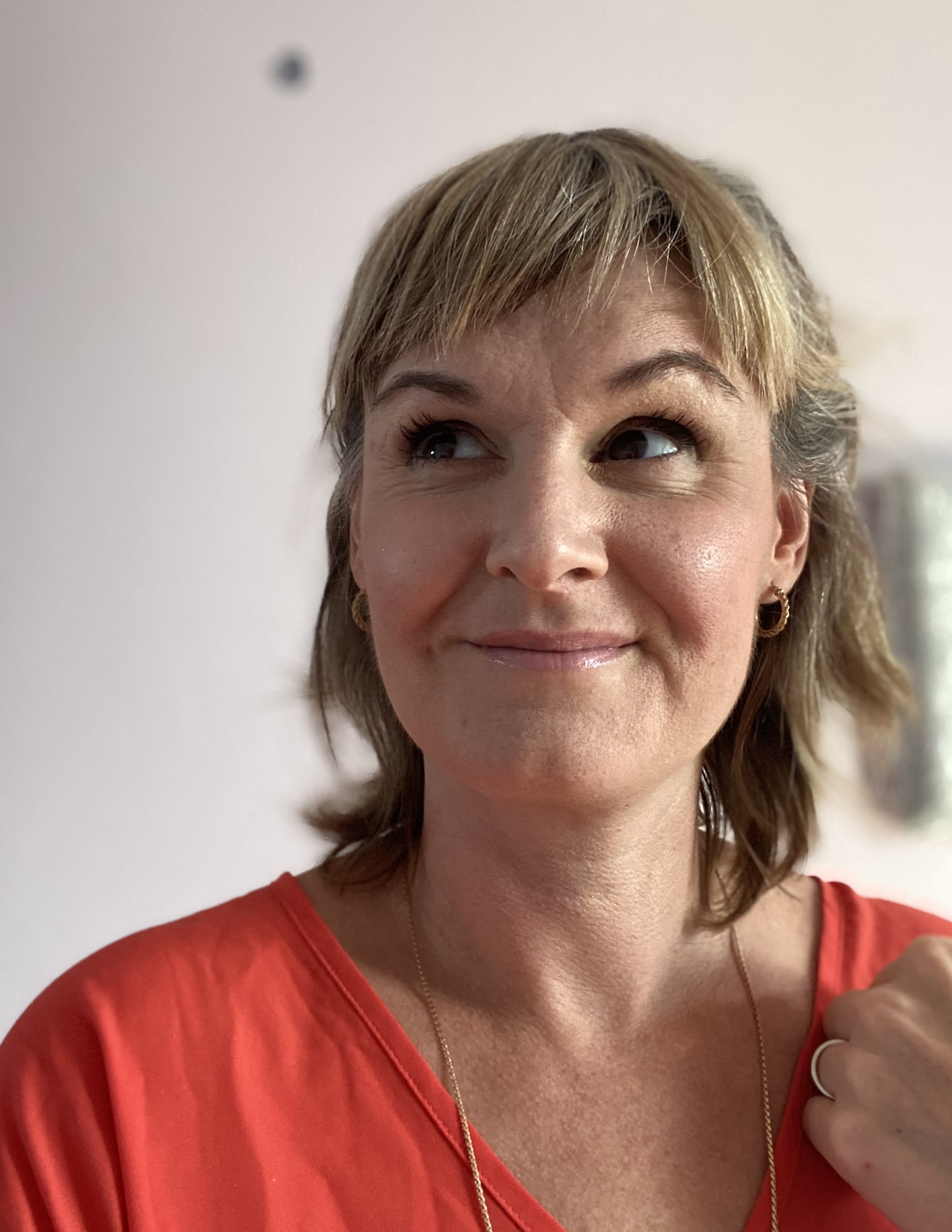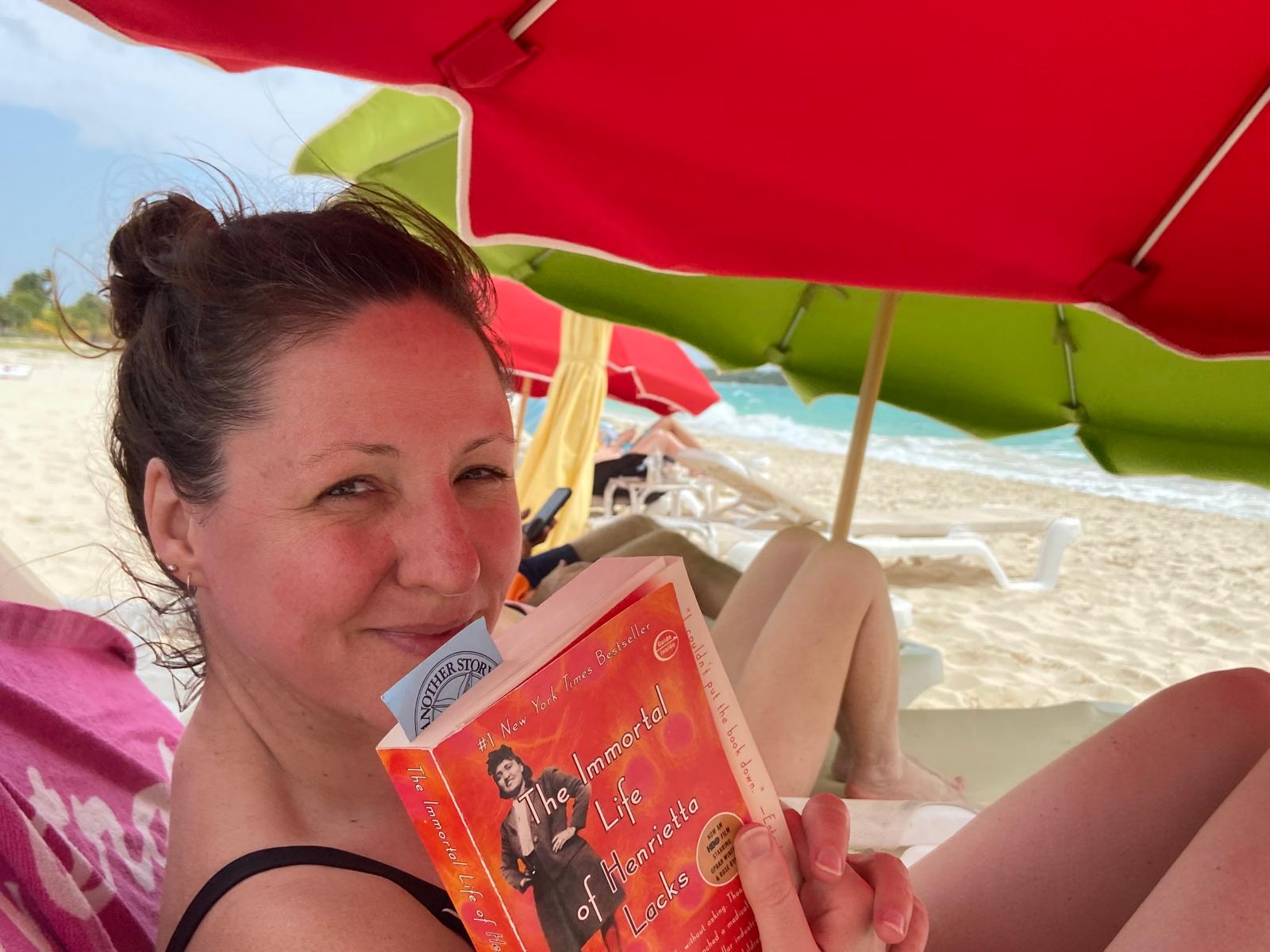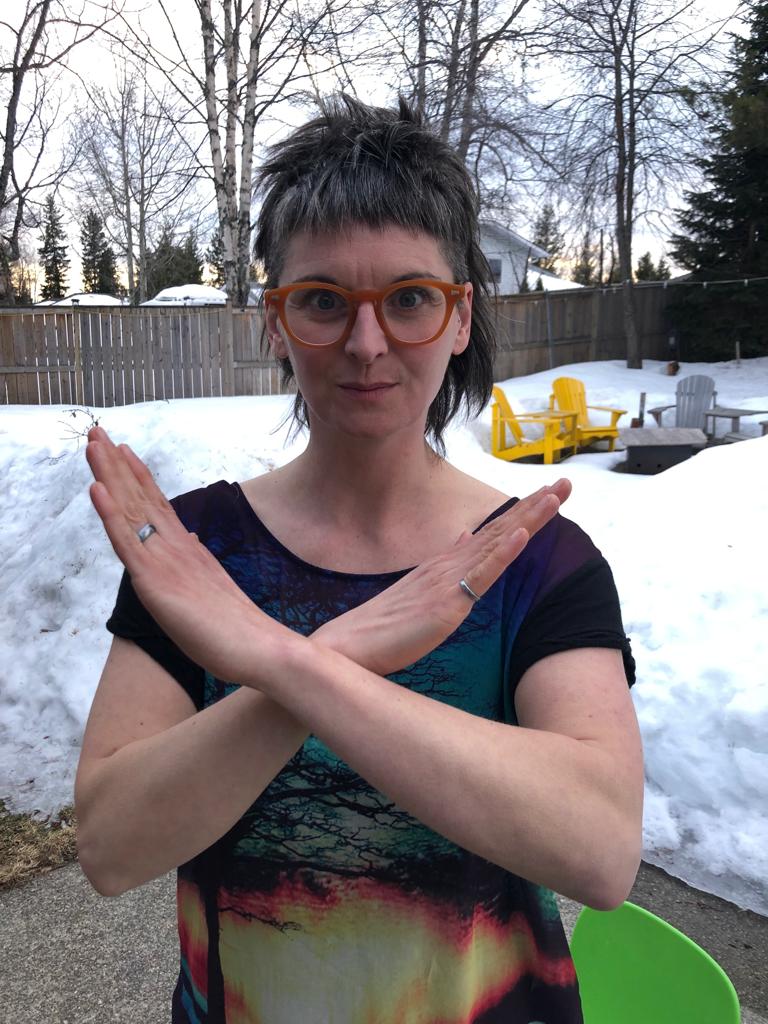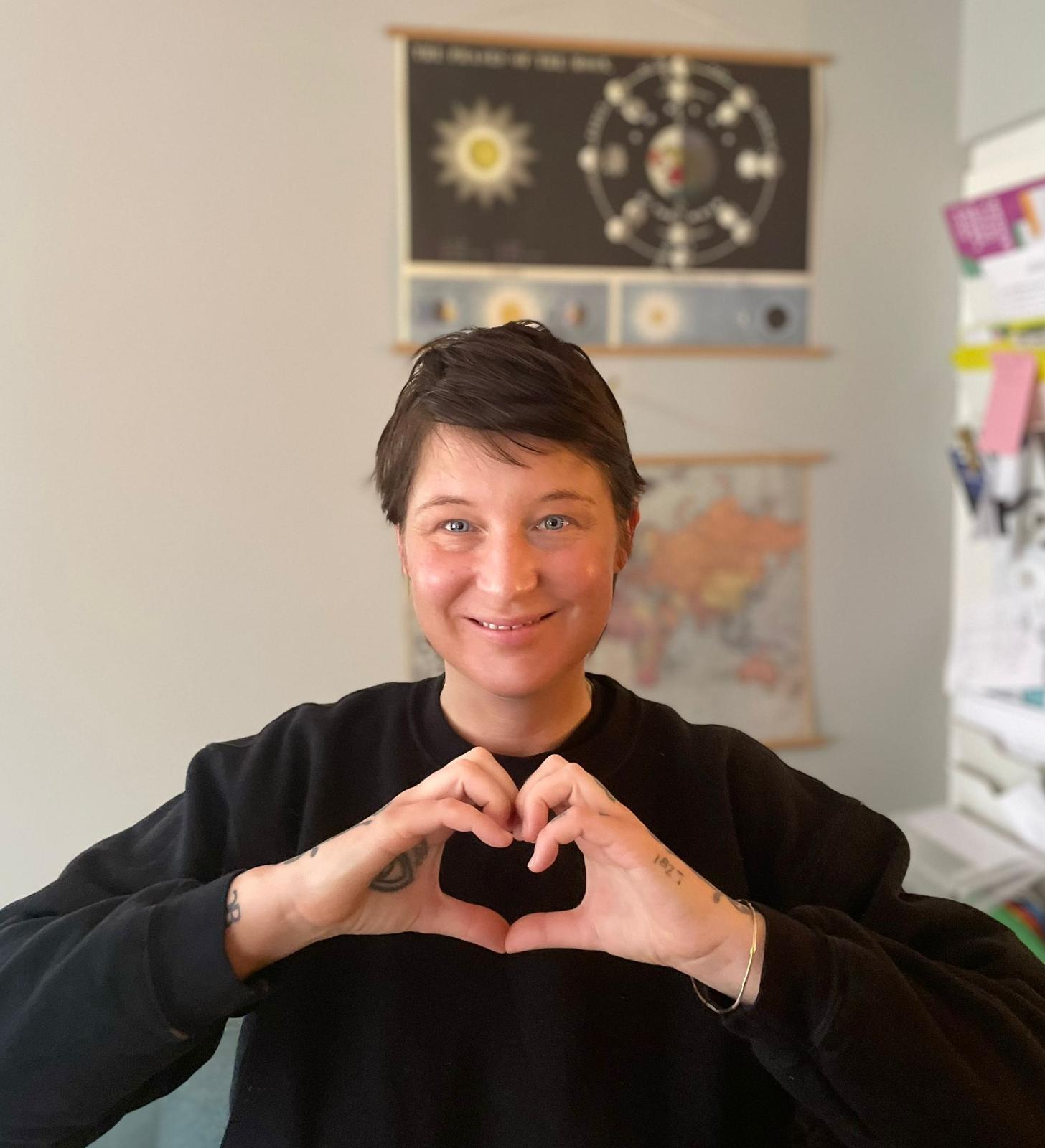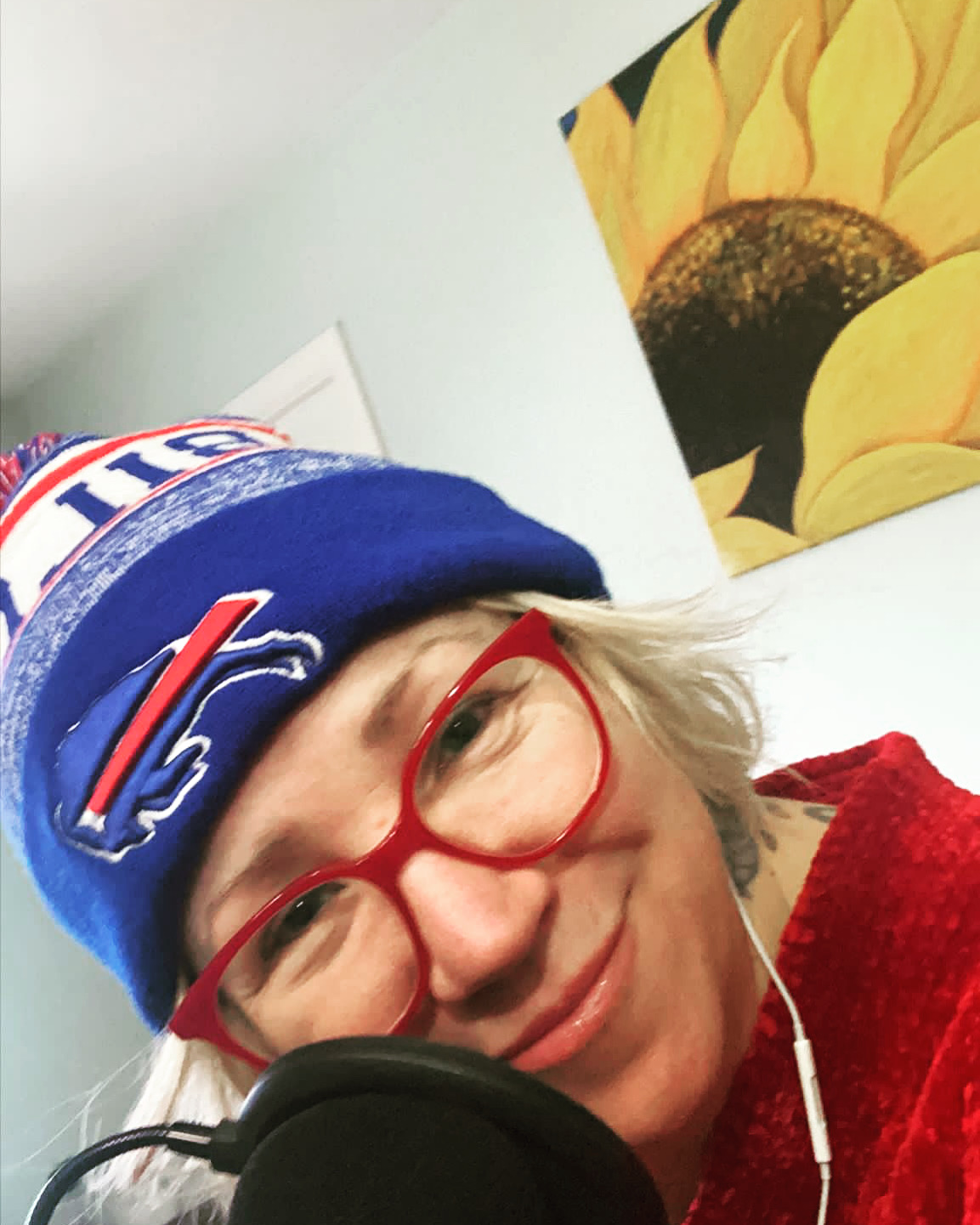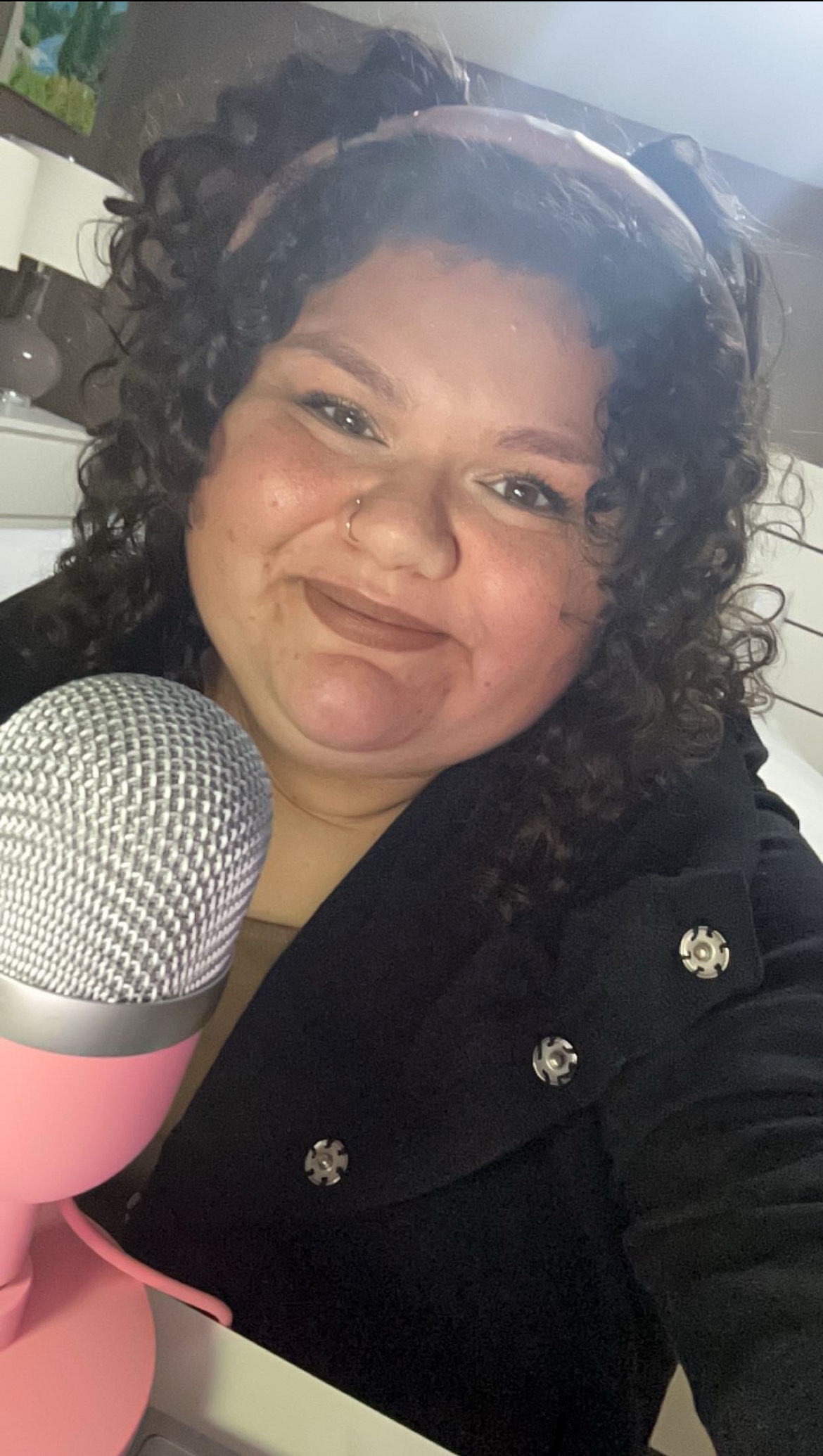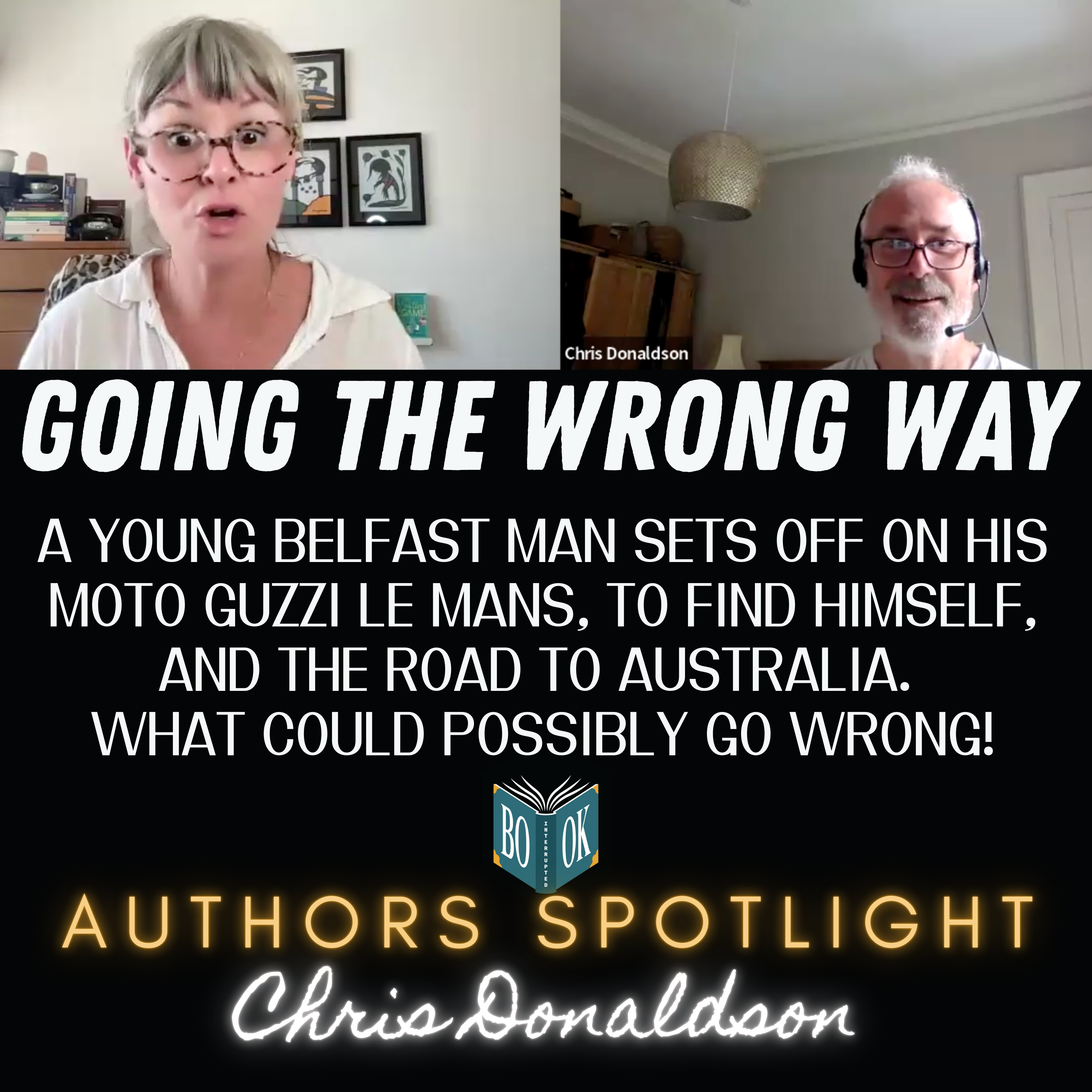Episode Transcript
[00:00:00] Speaker A: Without members, a book club is just a book. Join the community by following us on Facebook or sign up for exclusive content through our website, www.bookinterrupted.com.
[00:00:13] Speaker B: Unpublished parental guidance is recommended because this episode has mature topics and strong language, here are some moments you can look forward to during this episode of book.
[00:00:25] Speaker C: Interrupted brought up in Belfast in the sixties and seventies, and it was pretty crap place to be brought up, really, because there was bombs going off, people getting shot, all sorts of things going on at the time. Went through the Middle east, drove across the Sahara desert, ended up in Cape Town in the middle of apartheid.
[00:00:39] Speaker D: I was like, how did he, on a motorbike drive through the desert? That is serious, serious adventure.
[00:00:46] Speaker C: Even though it's more difficult, it's much more rewarding to actually put yourself through those challenges and come out the other side. Yeah, yeah.
[00:00:52] Speaker D: They're not having a real adventure. They're having a safety net adventure.
[00:00:56] Speaker C: Whereas if you hear one guy standing on a border in Africa driving across the desert, a road bike, I don't know if you know much about motorbikes because just wrong. It's like going desert driving in a ferrari. It's just not what you do, you know?
[00:01:08] Speaker D: Yeah. It's an inspiration. Gives people hope. And maybe it'll even push some people into finally chasing their dreams.
[00:01:14] Speaker C: I mean, one stage, I think it was south of Sudan, I actually drove off the edge of my map into Uganda. Had to find somebody coming the other way to swap maps around, you know? So you really are putting yourself through some sort of pseudomasochistic experience.
[00:01:43] Speaker A: I don't wanna be disrupted.
Mind, body and soul.
Inspiration is the goal and we're gonna talk it out on book. On book interrupted.
[00:02:04] Speaker B: Welcome to the author's spotlight. During these many episodes, we have authors come on and tell us about their books and why we should read them. Let's listen.
[00:02:12] Speaker D: Welcome to book interrupted. During this author's spotlight, we're talking to Chris Donaldson in his book going the wrong way. And it's a memoir. Is that correct, Chris?
[00:02:22] Speaker C: A memoir, that's right. Yeah. Yeah.
[00:02:24] Speaker D: So welcome to the show, Chris. Let us know why you think we should read your book.
[00:02:28] Speaker C: Well, it's the most main thing. It's got 1305 star reviews on Amazon, which is pretty, pretty incredible at the minute. I think she got a prize for taking the longest time to write a book. It took me 40 years to write it in the end, but really start off at the beginning. It was brought up in Belfast in the sixties and seventies and it was pretty crap. Place to be brought up, really, because there was bombs going off, people getting shot, all sorts of things going on at the time. So it got to the stage of finished education. Like a lot of irish people would want to get out of town and see the world. So I decided I want to go to Australia on a motorbike. For some reason, which I can't quite work out yet, but motorbike was really just a means to the end, to see the world and get to Australia. It was no Tober. November 79, I left and I got as far as London and the Ayatollah mainly took over the american embassy in Tehran, basically closed off Iran. So I couldn't go east, so I ended up going south just to get the heat. Found the sun, went through the Middle east, drove across the Sahara desert, ended up in Cape Town in the middle of apartheid. After various adventures, I got a job in sailing out, then sailing back up to Europe and got the bike shipped to the states, rode up to Canada and then down through states, through Central America. Ended up in Argentina. So about that time, I'd been writing journals and started writing a manuscript at that stage. Got home was 23, 22, 23. Another guy wrote a book about riding a motorcycle around the world. And I thought, well, there's no point in me doing it. There's no point in having two books about the same thing in my innocence.
It was only after I realized his book was completely different because he was 45 year old journalist, an author, writing book about riding around the world, whereas I was just basically a student and not a very good one either.
So I parked out my manuscripts in the bottom drawer and forgot about it for 40 years. And then a couple other people started doing similar trips. Ian McGregor people I got writing books about it. So I thought, well, I got to get mine finished. So I ended up finishing writing the book at the age of 62, 63. I'm now 66. That was really unique because I was able to read my journals and my manuscript that I'd written 40 years before and have a laugh at myself.
So I was able to put my years of experience on top of the perspective of the young guy. So it's written as a viewpoint of a 21 year old, but with my wealth of experience in life, university since then. So, yeah, it was quite an incredible journey, right, to book, going from my old journals and photographs and notes and stuff that I'd made. It was really nearly as if I was looking, reading a story about somebody else, not myself at all. Quite nice to know, too, that even though a lot of the stories were 40 years old and I hadn't thought about it for many years. I was amazed how much came back to my brain. It's obviously fogged with 40 years of too much alcohol and that sort of thing.
It was very emotional sometimes to actually be able to look at the photographs and remember what was happening and notes to go off as well. So it is quite a unique book, I think, from that perspective.
[00:05:25] Speaker D: I don't know if this is a spoiler, but I'm going to ask it, and if you don't want to reveal, that is perfectly okay. So did you make it to Australia on that trip or no?
[00:05:35] Speaker C: Well, I might as well say I didn't make it on that trip, though, which is the whole idea. It's a bit of a giveaway in the title, going the wrong way, because it ended up in Argentina instead of Australia. You can't go further wrong than that because I went a journey that I hadn't prepared for at all. The journey I'd prepared for was finished. So I had to go to Africa without any notion what was in Africa, how I was going across borders. I mean, driving across the desert, a road bike. I don't know if you know much about motorbikes because just the wrong. It's like going desert driving in a Ferrari. It's just not what you do, you know?
[00:06:06] Speaker D: I know you said you drove through the Sahara because I'm in Senegal. I was like, how did he, on a motorbike, drive through the desert? That is serious.
[00:06:17] Speaker C: It was pretty nice adventure, traveling in a convoy, but some days we would have covered with maybe 10 miles after pushing, digging and shoving the whole way. Still only covered 10 miles, so it was pretty hard going. And then through the rest of sedan was pretty grim as well. There's maybe 600 miles between petrol stations, so you'd have to carry all the petrol to cover you for 600 miles down dark road. So we'd like to do it again. But in fact, it is another spoiler.
Whenever I'd published the book, somebody said, well, you never actually got to Australia, why don't you have another go? So I still had the original motorbike in the garage. So pulled out, parted up a bit and the trip was set off for Australia two years ago, just after Covid.
So I finally made it on the same motorbike 40 years later, finally got to Australia, which I left in 79. So it's a bit of a record breaker. Slow trip as well.
[00:07:04] Speaker D: But you got there. That's amazing.
[00:07:07] Speaker C: That's great.
[00:07:08] Speaker D: I was wondering about the motorbike, because when it said Belfast in Australia, I was like, how are you going to get the motorbike over the ocean? But I guess you ship it.
[00:07:17] Speaker C: You have to ship it. Well, Myanmar has been closed off for years and years, so basically you have to ship from India to Australia. So as you say, there's too much sea to ride a motorbike around the world. You can sail around the world, you can fly around it, but you can't actually drive. You can actually go up and down it much easier. You know, you can go from Belfast to Cape Town, from Canada to South America. But that's a different story. Whenever I started writing about it, I realized it wasn't just a geographical going the wrong way, it was actually a story of my life. Very often I've taken the road less traveled is probably a more popular term for taking the road that everybody sort of avoids. And the reason they avoid that is because it's a more difficult life challenge to travel with. But what I want to tell in the book was that even though it's more difficult, it's much more rewarding to actually put yourself through those challenges and come out the other side. So it's a bit of a philosophical coming of age story as well.
[00:08:05] Speaker D: No, I would agree with that 100%. The greatest adventures are the ones that people usually say, why would you do that? What if you don't like it? What if you let this happen? And he's like, well, what if it doesn't? What if I have this amazing adventure in my life?
[00:08:18] Speaker C: Yeah, well, you mean you can fly for Belfast, Australia, without any hardship at all, you know, so you really are putting yourself through some sort of state of masochistic experience.
First going the wrong way. It was a bit of a coming of age story left when I was 21 and putting myself against all the challenges that I could find, basically, and reading about it when you're 65, I'm at the end of the working environment, if you like. So retiring now. So it's a different perspective altogether. Probably just as challenging a time going into retirement rather than going into just coming of age. Yeah, yeah, yeah.
[00:08:53] Speaker D: I think also, in my experience, it's easier to make that jump when you're young because you don't really think about the consequences as much.
[00:09:01] Speaker C: Yeah, you don't think about the consequences. You think you can't be stopped here, you think you're invincible at that stage when you're 21, it's only when you get to 16 you realize, oh, I shouldn't do that you shouldn't do that. And my next book will be entering into that, really about why older people nearly lose the will to live. They stop when they retire, especially men. They've identified themselves with their work for 40 years, and all of a sudden, overnight, they stop work, sit in the garden and play golf. This is a big life change. But that's the next book. I have to wait another 40 years for that one.
[00:09:30] Speaker D: I like that. That's what you did when you were in retirement, agent. You went back and looked at this amazing adventure and then reflected with the person you become, which is basically this adventure molded you into.
[00:09:41] Speaker C: Yeah.
[00:09:42] Speaker D: And how it affected who you are. And I think that's really amazing.
[00:09:46] Speaker C: Yeah. I mean, I've been through some fairly dodgy times with business wise. I worked as an entrepreneur, had arguments with the banks. A lot of people had. But it's always given me confidence that I'm standing in front of a judge in a position fighting for my business. I just think, well, this may be difficult, but it's not as difficult as driving across the Sahara desert. So it's always good, maybe, like confidence to be able to go back at.
[00:10:10] Speaker D: Yeah, it makes you definitely have more endurance for life.
[00:10:14] Speaker C: Funny enough, reading some of my reviews, they've been quite touching. One guy said his son was having spinal surgery and going through a lot of pain, a lot of trouble, with about 20 different operations on it at this stage. And he wrote to me to say he was able to read my book to his son, helped him give him the ability to hang on there, to go another mile, to go through another operation. So it's quite touching that some of the reviews have come to that sort of opinion as well. So it's been nice.
[00:10:37] Speaker D: Yeah, it's an inspiration. Gives people hope, and maybe it'll even push some people into finally chasing their dreams.
[00:10:44] Speaker C: Yeah, well, that's the idea in a way, because people got so health and safety conscious these days and risk averse, they'd rather watch it on tv than actually go out there and do it. As I said, if I can ride a motorbike at 21 with no experience, travel, not even knowing one stage, I think it was south of Sudan, I actually drove off the edge of my map into Uganda. Had to find somebody coming the other way to swap maps around, you know, before gps, obviously, before the Internet. So everything was much more. You'll find out when you get there, you know.
[00:11:10] Speaker D: Yeah. What you said is true. I think that people sitting home and watching characters having experiences on tv or actual people having experience on tv and not having any experiences of themselves leads to people kind of being depressed and not.
[00:11:25] Speaker C: Yeah. You're watching an adventure program like Top Gear. They've driven the motor car to, I don't know if you have it in Canada, driven to cars, to the Arctic Circle, across the deserts and so on. They went down to Argentina a few years ago and they got into trouble with the local police and stuff, but it's only when you read about it, they actually had really, them on the camera, but it's about 50 of a backup looking after them, their money, their health, their security and everything else, which is they're going down the same road. It's a different road if you're on your own and you've only got so much limited resources. It's a very different experience. I know.
[00:11:56] Speaker D: My husband actually is always saying that when I'm watching something like, can you believe this? He's like, who's videotaping that? I was like, oh, right, not alone. Someone is there with a mic and a camera and maybe there's a crew and if something really bad happened.
[00:12:11] Speaker C: Yeah, yeah.
[00:12:12] Speaker D: They're not having a real adventure, they're having a safety net adventure.
[00:12:15] Speaker C: Whereas if you're one guy standing on a border in Africa with you against the rest of the world, you've got yourself into the situation now. You've got to get yourself out of it. You know, it's nobody else to back you up. Yeah, totally.
[00:12:26] Speaker D: And I read on your website you got trapped in Syria, Jordan and Israel. Is that right? How did that happen?
[00:12:33] Speaker C: Well, in my innocence, we took a boat to Israel because there'd been a ceasefire with Egypt and Jordan at that stage, thinking we could just drive to Egypt, but they wouldn't let us out over the border because it was. I mean, there's still trenches across the road. So the ceasefire had been signed, but hadn't practically implemented it yet. So I had to go back to Cyprus, over to Syria, which wasn't much better than it is now, on through Jordan. So there's sort of a bit of a roundabout tour of the Middle east as well.
[00:12:57] Speaker D: Wow, that's amazing. Yeah. A lot of people are watching these kind of shows. It's just making me think if they read your book, they're going to see what a real.
They can visualize what you're going through, because it's actually a real experience rather than, you know, I feel like we filter things so much. Like, everything now. Even camera filters, like, everything.
[00:13:16] Speaker C: So, used to say the camera never lies, but the camera does lie now, even movies lie because AI into it. But, yeah, and certainly the whole book writing experience was great because I was self published, a book I got a couple of editors to go through. I could edit it after I'd written it, and then I'd have her eye with the editor because I wanted to take some pieces out of it. I said, you can't do that because that's a. What makes a story. Even though it's maybe not quite as polished that you would like fully edited book to read. Mine's a much more. It's a bit of raw, as a 21 year old would see the world, rather than as a 60 year old or a 50 year old editor sitting in an office in London would see it. So it's. I think it's been quite a refreshing blast of interest. Certainly the reviews are backing that up. Anyway, I love that.
[00:14:02] Speaker D: So how long did you do the adventure for before you came back home?
[00:14:06] Speaker C: About a year and a half.
[00:14:07] Speaker D: Year and a half.
[00:14:08] Speaker C: And in those days, if you wanted to phone home from Africa, somewhere from Egypt, for instance, you had to book your call the day before. It costs about five pounds or about $50 now to make a five minute call home, you know, whereas when I drove to Australia last year, you've got your mobile, you've got WhatsApp, you can phone home at any time you want, your gps show you where to go. You can google the town next time to see whether the next hotel is going to be. And I think the journey I made is probably one of the last, before they last. Sort of more touching with the old victorian explorers, if you like, disappeared for months at hand. Nobody knew where they were. Whereas now everybody knows where everybody is. You know, my wife is able to say application on the phone and they actually see me driving across Iran, you know, so this is amazing that what has actually happened in the last 30.
[00:14:54] Speaker D: 40 years, I remember, same thing. We used to call relatives, and I remember my grandparents. Whenever I call them, they'd be like, okay, okay, off the phone. It's going to go over this certain time amount and then they'll charge us extra. We're like, okay, let me buy. And then I remember when we went to China, me and my husband went to China about 15 years ago now. And they had just started with the smartphones and I had my first iPhone and it was the first iPhone. It was like tiny. I remember I got lost and he said, no problem. There's this thing I can go on my computer and it says, where's my phone? And I can find you because I was trying to, like, look at a map. I'm like, I'm completely lost in Shanghai. I don't know where I am. Like, I'm looking on here, and I remember thinking, this is going to change the whole world. You can find me just because I'm talking to you on my phone. Totally different. And I used to be on the road sales rep when I was younger, and the map books I had in my car marking off all my accounts, totally different. Now I just, like, type in an address and up I go.
[00:15:56] Speaker C: I think it was by navigating yourself, you've built up a sense of direction. You know, you drive in a city and you think, well, I think it's up that way, but it might be, might not be, but you think it's that way. And very often you're not far wrong. Nobody ever has to do that anymore. You're just going somewhere. You just put it logged into your gps, and sometimes you think, how did I actually get here? You can't actually remember the road you took because you're just following that nice lady telling you, turn left, turn right completely.
[00:16:21] Speaker D: When I go to Canada, like, I've even told people directions saying, oh, if you go north and they're like, which way is north? They don't even know what direction north, south, east or west is, where they're standing. And I think that's because the gps, they just, people don't have to think about that anymore. So that's not something that their memory or their mind has to calculate level.
[00:16:42] Speaker C: Of navigating, which is not in your brain anymore. You just do what you're told.
So, yeah, there's that to it as well. But so many other things have changed with Internet, as I say, with nobody goes to a restaurant now without checking the reviews for it, that sort of thing. Just simple as that. You don't. Nobody goes anywhere without checking, without making sure it's the right place and getting the best value, whatever. You know, sometimes it's nice just to go, say, the road less traveled or the wrong way. And writing the book. I did realize that whether I would have done or not, but various spirits in my life, I have picked a harder route to go down just for the fun of it.
[00:17:15] Speaker D: Well, I think it builds character, too. And I was reading something somewhere that said purposely taking a different route can lead you to it can literally change your life. Yeah, just going a different route. You know, you can run into someone, meet someone, find a place. Like, things change. If you try something different. But because you're so programmed just to, like, follow what the technology says that you never do. So you never have any new experiences. You just are like making your bubble smaller and smaller and smaller.
[00:17:43] Speaker C: Yeah. I mean, there's a reaction against people. Don't like having too much of adventure, don't like the uncertainty of things, want to have everything planned. And so the guy when I went away two years ago, there's two of us. The guy whose idea was for me to go to Australia, this time he got halfway there. He got to Israel, and he decided to come home because he thought it's not worth the risk or worth the adventure. And he's probably right.
What do you gain from riding a motorbike to Australia? Really? It's a stupid thing to do because it's enough. Fly there, you take a bus, train, whatever it is. Probably the stupidest thing you can do. But again, the most rewarding as well, because if you're on a motorbike, it's very easy for people to come over and talk to you if you drive into a small town. So you get much better reaction. You're on your own, you're there. You don't have wind down the window to speak to people. You can just there and it's an immediate contact with them. But, yeah, it's not the. Not the smartest thing to do.
[00:18:37] Speaker D: It's a great story.
[00:18:39] Speaker C: Well, I read somewhere that the best stories, something goes wrong very early on in the trip, and they spend the next reading the book. The author's trying to get his way out of these situations. So it's certainly all the situations I ended up having difficulty getting out of.
[00:18:52] Speaker D: I know you're here to write it. So it worked out well.
[00:18:56] Speaker C: Exactly. That's the kind. The secret plot of the story is I didn't die. I made it.
[00:19:00] Speaker D: Yeah, that's true. Okay, well, that's all we have time for during this mini episode. Readers, if you'd like to pick up this book, it's called going the wrong Way. And it's Chris Donaldson's book where he tried to go from Belfast to Australia. You can find it on our website at www.bookinterrupted.com shop. And we have a section called Author Spotlight. And you can find his book there. You can also find a link to his website and his book on our show notes below. Yeah, I guess that's it.
[00:19:35] Speaker C: It's also an audiobook. I don't know if. You don't know if you guys approve of audiobooks, do you?
[00:19:40] Speaker D: Oh, no. Yeah, audiobooks for sure. It's in an audiobook.
[00:19:43] Speaker C: Yeah, it's an audiobook as well. Yeah.
[00:19:44] Speaker D: Perfect. No, we, all of us actually, there's only one member on book interrupted that's held out and has never listened to an audiobook. I'm a big audiobook person. I'm constantly reading an actual book and listening to an audiobook at all times. That's all I ever do. And is audiobook also available on Amazon.
[00:20:02] Speaker C: Or just a hardback paperback ebook and audiobook on Amazon?
[00:20:06] Speaker D: Great.
[00:20:07] Speaker C: Yeah.
[00:20:07] Speaker D: So we'll put the link for the Amazon page on our website and you can listen, read scroll Chris's book. Wonderful.
[00:20:15] Speaker C: Thanks very much.
[00:20:16] Speaker D: Thank you.
[00:20:17] Speaker B: Thank you for joining us on this episode of Book Interrupted. If you'd like to see the video highlights from this episode, please go to our YouTube channel, Book interrupted. You can also find our videos on www.bookinterrupted.com.
[00:20:34] Speaker E: Have a listen to our off the shelf episodes. These are the silly, fun and weird wonderful things we do when we get off queue. So listen to our off the shelf episodes to hear more and more from us. The book interrupted crew I think you'll love it and I know you'll laugh.
[00:20:55] Speaker A: Book interrupted never forget, every child matters.
